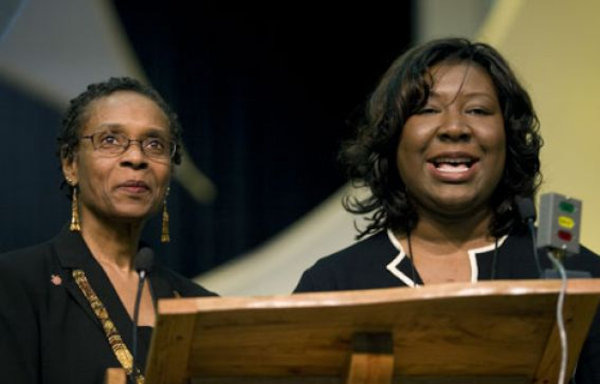Five persons share their perspectives on bridging divides and fostering understanding.
POLLY HOUSE
Interpreter Magazine
In 2016, The General Conference of The United Methodist Church amended and readopted its affirmation of the United Nations principles relating to global racism, tribalism and xenophobia.
The resolution “Global Racism and Xenophobia — Impact on Women, Children, and Youth” affirms the principles of equality and nondiscrimination, saying: “We, the General Conference, affirm that all peoples and individuals constitute one human family, rich in diversity. ‘So now, you are no longer strangers and aliens. Rather, you are fellow citizens with God’s people, and you belong to God’s household.’ (Ephesians 2:19).”
Interpreter asked five people who work daily toward racial and ethnic understanding how people can live together well, whether because of or despite the various divides.
Bishop Linda Lee: Read and learn
For retired Bishop Linda Lee, reading and learning are central to living well in a diverse society.
She suggests people read a history of a culture written by a member of that culture. “Some people never read books written by people who have lived the culture and not just studied it.”
Lee served as editor of A New Dawn in Beloved Community (Abingdon Press, 2013). Through personal essays, writers tell stories from their own cultures and experiences.
“It was my idea to see if we could do a book that would be useful to the church to learn more across (divides of) race and culture,” Lee said. “We wanted the book to almost be like talking to someone. Each person told a personal story of his or her own culture. Sometimes people of color don’t know about their own culture, much less that of other cultures, even within their own race.”
She said she believes the most important work is to understand how embedded the idea of white supremacy is in Western culture and to take steps to unlearn it, adding, this is true not only for whites, but also for people of color.
Lee reiterated the importance of people knowing their own cultural history, the accomplishments and contributions.
“We tend to internalize racism,” Lee said. “We might learn to think we are inferior and not capable. We must know the truth: We are all made in the image of God. No one is more or less valuable because of how we look on the outside. We are all capable of so much.”
Tink Tinker: Repent continuously
The Rev. Tink Tinker, a member of the Osage Nation and the Clifford Baldridge Professor of American Indian Cultures and Religious Traditions at lliff School of Theology, said if United Methodists want to live well with their Native American brothers and sisters, it will begin with ongoing repentance for horrific past wrongs.
“It is going to take more than an apology,” said Tinker. “An apology isn’t going to cut it. How would that work? Y’all would come to our people and say, ‘Hey, we really are sorry that our great grandparents killed your great grandparents and stole their land. Can we keep your land now that we have apologized?'”
Repentance, he said, must be ongoing and requires action.
“Repent and keep on repenting,” he said. “No one can repent once and be done with it. Repentance must be an on-going process. The actual Greek text in Mark says, ‘Be repenting!’ It’s a way of living out our lives. It means turning around and going to where you came, going back to the Creator instead of making yourself the power of creation. Just go back and understand that you are no more than anyone else in the world.”
Tinker said, “Go back and own the violence committed against the Indian people. If you want to make right what was made horribly wrong, give the land back. Give the resources back.
“The United Methodist Church owns a tremendous amount of Indian land. The property of every church and every school and seminary land sits on land that was stolen from Indian people. Find a way to give some of it back!”
He added, “If all you do is feel really, really bad about the history of violence against the Indian people, it won’t help the Indian people today. Six of the 10 poorest counties in the U.S. are Indian reservations. There is a reason for that. (After their land was stolen) the Indian people were left with land that is not economically viable.
“It‘s not as easy as kiss and make up.”
Click here to go to Interpreter Magazine’s July-August edition for the other three witnesses:
- Erin Hawkins: Listen, learn, lead;
- Samuel Royappa: See differences as strengths;
- Elaine Robinson: Embrace intentionality.
Last Updated on December 27, 2022

